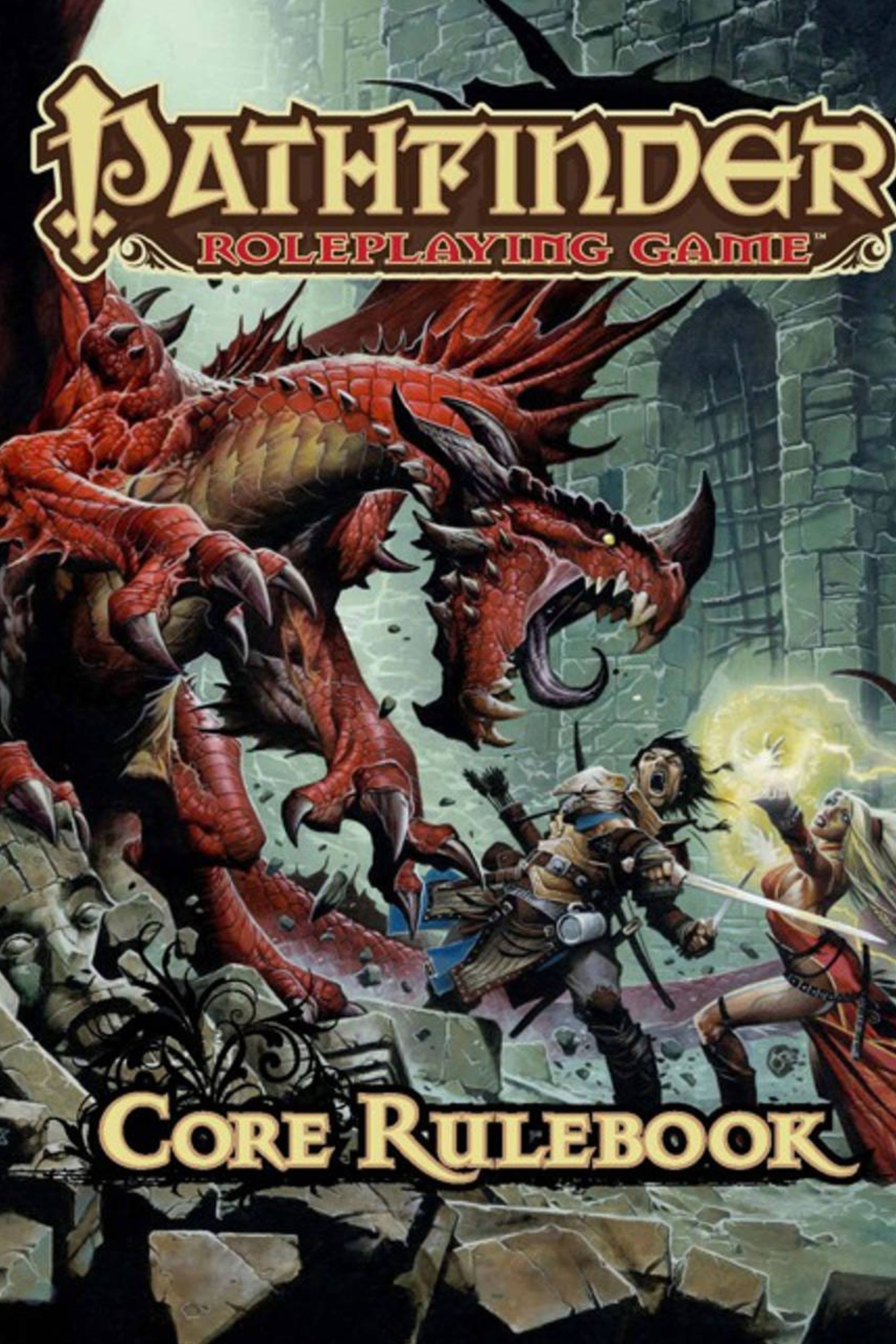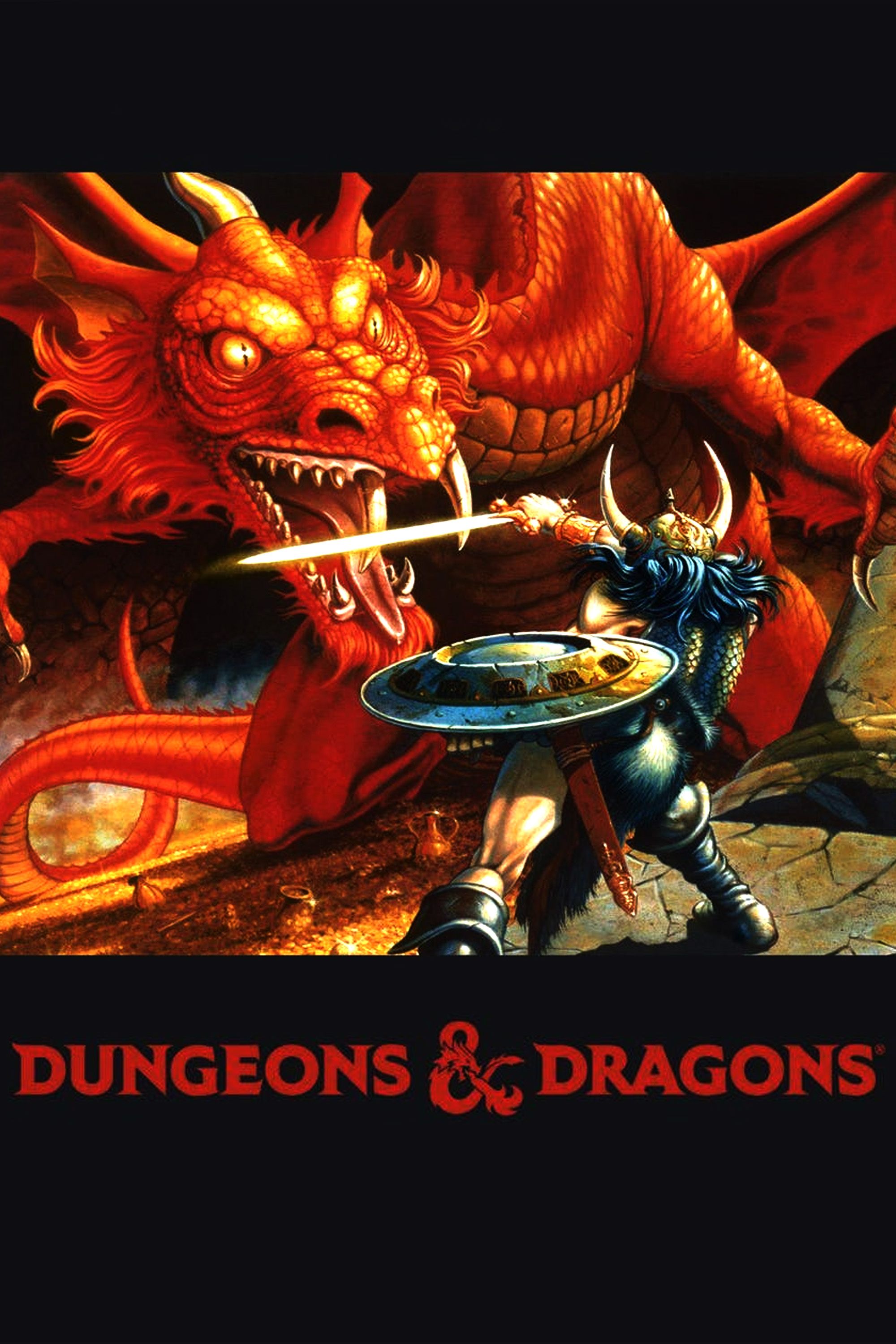-
Pathfinder
Perfect For Experienced Players
Dungeons & Dragons continues to change the atmosphere of Tabletop RPGs. As popular as it's ever been, there are so many options and so much content to choose from that it's a wonder everyone isn't already playing this game.- Original Release Date
- 08-01-2019
- Player Count
- 2+
- Franchise Name
- Pathfinder
- Brand
- Pathfinder
Pros- In-depth player and Game Master options
- Adaptable and fluid, great for experiences players
Cons- A bit more difficult than D&D
-
Dungeons & Dragons
Perfect For BeginnersDungeons & Dragons continues to change the atmosphere of Tabletop RPGs. As popular as it's ever been, there are so many options and so much content to choose from that it's a wonder everyone isn't already playing this game.
- Original Release Date
- 1974-00-00
- Player Count
- 2+
- Franchise Name
- Dungeons & Dragons
- Brand
- Dungeons & Dragons
Pros- Brand Recognition
- Ease of Use
Cons- Some players may have issue with Wizards of the Coast practices
Pathfinder and Dungeons & Dragons are the two most popular tabletop RPGs currently available. D&D is in its Fifth Edition, and Pathfinder is in its Second. They're direct competitors, and while the decision to play one over the other is up to the player, each has plenty of good points to recommend.
Every player prefers a different game style, and playing with the right group means you'll always have fun no matter what. Given a choice, though, which of the two games will give you the most enjoyable experience? Let's break down the differences between D&D and Pathfinder to see which game is suitable for you.
Dungeons & Dragons Pathfinder Original Release Date 1974-00-00 08-01-2019 Player Count 2+ 2+ Franchise Name Dungeons & Dragons Pathfinder Brand Dungeons & Dragons Pathfinder
Price
You can essentially play both games for free. Both Pathfinder & D&D offer online resources with rules for how to play and get started. However, these can only take you so far.
Pathfinder and D&D will want you to buy into a set of rulebooks to get the gist of how to play. The Pathfinder Core Rulebook and the Dungeons & Dragons Fifth Edition Player's Handbook will cost you around $50. You'll be able to constantly find the Dungeons & Dragons Player's Handbook and other essential D&D core sourcebooks on sale, possibly saving you money with this choice.
Both games have sourcebooks in digital format, but D&D has the luxury of being offered directly through D&D Beyond. With a fair price that can also be caught on sale and connectivity with the online version and D&D itself, if you're looking for sourcebooks online, D&D is the way to go.
Both tabletop games will have a similar buy-in price, offering expansions you can gain access to by buying more books. However, you may end up with a better deal going with Dungeons & Dragons, as its books are often on sale.
Rules
Both systems use a d20 roll as their primary method of determining the success or failure of an action. If the result of the roll meets or exceeds the action's Difficulty Class after applying modifiers, the action succeeds. Otherwise, it fails. There are a few key differences that players will need to be aware of when switching games for the first time, and you might find that you prefer one method over the other.
Proficiency
Both systems use a mechanic called Proficiency, which determines how competent a character is at a given task. Pathfinder assigns individual Proficiencies to each capability, adding between two and eight to the result of a die roll. Each Proficiency and its rank must be tracked separately. D&D gives each character a single Proficiency Bonus tied to their level. Whenever a character attempts something, they're either proficient or not – if they are, thanks to training, natural aptitude, or quality tools, they get to add their Proficiency Bonus to the roll.
Advantage And Disadvantage
Pathfinder uses the classic method of determining whether outside factors affect a character's action. Favorable conditions add to the die result, and unfavorable ones subtract from it.
For example, a character climbing a cliff face might get a plus four bonus from a magic item designed specifically for that purpose but a minus two penalty from the rocks being wet and slippery - absent any other modifiers from skills and the like, the player gets plus two to the roll.
D&D simplifies this system by having the DM determine whether a character has Advantage, Disadvantage, or neither. A character with Advantage rolls twice and chooses the better result, and a character with Disadvantage rolls twice and takes the worse result. If both Advantage and Disadvantage are applied to the situation, it becomes a regular roll.
In the cliff-climbing example above, the magic item would grant Advantage, but the Disadvantage from the slippery rocks would cancel it out. Unless the player or their party members can come up with some additional way to boost the character's chances, they'll be relying solely on their Athletics skill with one die roll, pass or fail.
Gameplay
Character Creation
Both games grew out of the same ruleset, so if you've played one, it will be easy to pick up the other. Each allows you to select a background and a class for your character and their fantasy species –or ancestry, as Pathfinder calls it. D&D has more playable species overall, including the popular Dragonborn and Tieflings. However, Pathfinder's Goblins are a mischievous delight; if you're a player who likes their character to get into trouble, give the Goblins a look.
D&D's plug-and-play approach to character creation makes it easy to whip up a new character quickly and introduce players to the game. Most of a character's starting abilities are determined by the above broad-stroke choices, with some embellishments here and there to give each character unique flavor. Pathfinder character creation takes more time, as there are more decision points throughout the process, allowing for more individuality between characters.
Feats
First introduced in Dungeons & Dragons, Third Edition, Feats are character options that allow players to specialize or to access traits they might not otherwise be able to get. Feats are present in both games, but Pathfinder focuses on them much more heavily. Every few levels, a Pathfinder character gains access to a new feat derived from their heritage, their class, or from a list of generic options.
In Dungeons & Dragons, Feats are optional - whenever your character would increase an Ability Score from leveling up, they can instead opt to take a Feat. Feats are much more limited in scope in D&D Fifth Edition, usually expanding the options available to a character in the long term; taking a Feat can be said to widen a character's power rather than heighten it.
FAQ
Is D&D Better Than Pathfinder
No, while both games are similar, they offer different ways of playing. Neither is better, though one will certainly fit your playstyle more. Dungeons & Dragons has simpler, more streamlined rules, while Pathfinder is slightly more complex but allows for greater flexibility.
Is Pathfinder Harder Than D&D
Pathfinder will be more detail oriented and slightly more complex than D&D. Players just starting out with Tabletop RPGs will have an easier time with D&D and its simpler ruleset. More experienced players will enjoy the amount of detail that goes into Pathfinder and just how much you can delve into the minutiae of everything. If you enjoy really digging into every aspect of gameplay and detail, Pathfinder will be a better choice for you.


